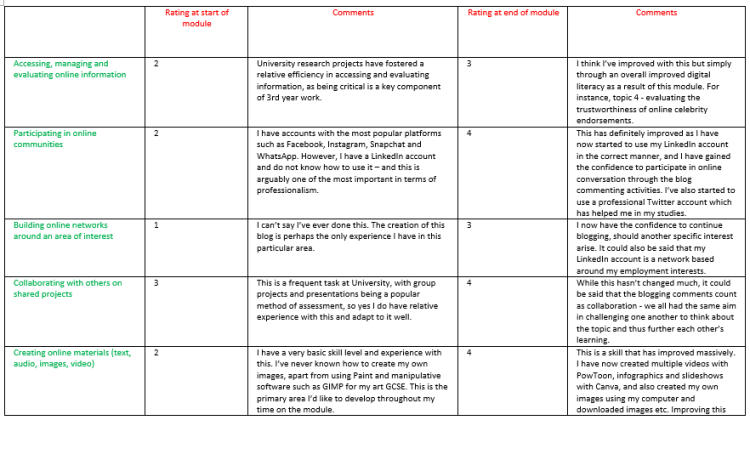
Goodbye UOSM2008!
Self test!
After years of essay writing, UOSM2008 has been a welcomed and refreshing change. This module has provided me with the skills to confidently enter a 21st century workplace, and has also given me the confidence to blog, which is something I’ve never done before.
I highlighted topic 3 as the one that spurred me into changing my online activities: I took inspiration from that weeks’ content and got to work on many of my online platforms…
Firstly, LINKEDIN: https://www.linkedin.
Continue reading →










